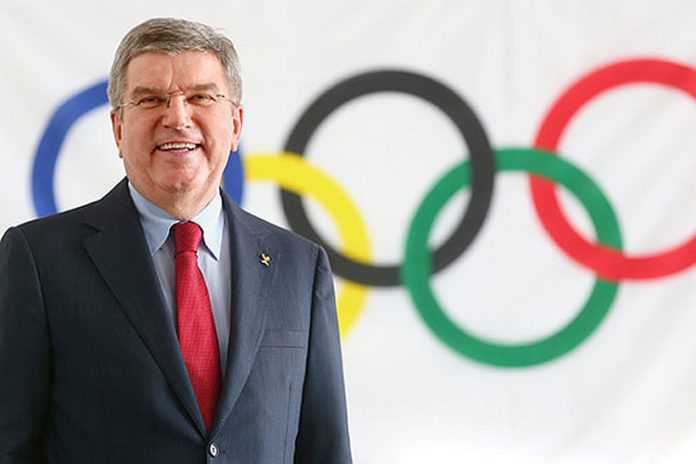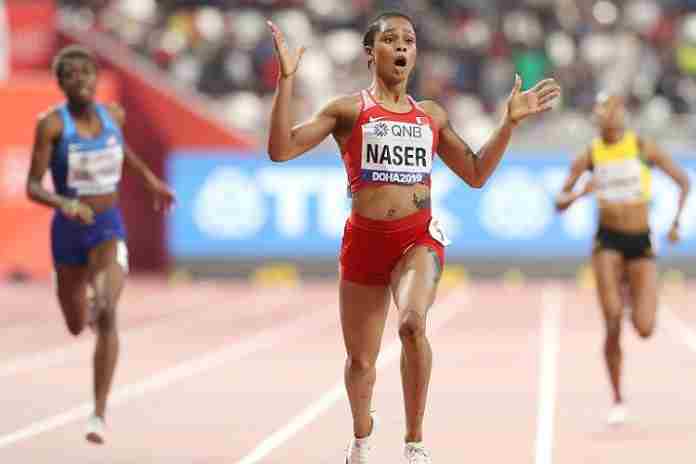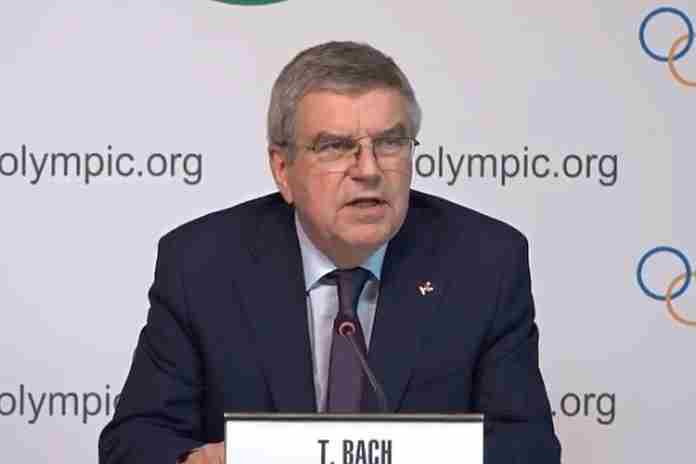 “We have also discussed the Salazar case, which is very worrying and raises serious concerns, but we are confident that [the World Anti-Doping Agency] will look into this case very carefully, and will follow up on the questions which remain open. After this report … the IOC will write a letter to WADA in this respect.”
“We have also discussed the Salazar case, which is very worrying and raises serious concerns, but we are confident that [the World Anti-Doping Agency] will look into this case very carefully, and will follow up on the questions which remain open. After this report … the IOC will write a letter to WADA in this respect.”
Following the end of the International Olympic Committee Executive Board meeting in Lausanne, Switzerland on Thursday, IOC President Thomas Bach reviewed the two days of discussions at a news conference, with significant, continuing attention to doping.
He singled out this week’s ruling in arbitration that confirmed a four-year sanction by the U.S. Anti-Doping Agency on Nike Oregon Project coach Alberto Salazar and Dr. Jeffrey Brown, a physician associated with the program, during his opening remarks noted above.
In response to a question, however, he went into greater depth on what the IOC will ask WADA in its letter and it’s quite serious:
“First of all, to see how many athletes have been investigated, have all the athletes been investigated who were training in this center, does the report address the whole period of the existence of this project, or only part of it, could there [be] any results – Olympic results – be affected, directly or indirectly with regard to also the principle of strict liability, because we learned from this report that the athletes would not have known what happened to them.
“This is an important factor when it comes to suspensions or sanctions, but for disqualification from an event is mandatory under the principle of strict liability, whether the athlete knew or not. It’s just about the presence of the substance in the body or the application of the prohibited methods.
“But we are very confident that WADA is looking into this anyway, so we are waiting for the advice of WADA in this respect.”
It’s not WADA, but the USADA which has actually investigated the matter and imposed the sanction, but the level of interest in the suspension of a U.S. coach is pretty remarkable.
Bach also explained that the IOC wants to go even further regarding preserving doping samples taken during non-competition periods, so that they can be re-tested as improved testing technologies are developed:
“[T]he IOC Executive Board has made it clear that we would like to see a long-term storage program being established, also for the pre-Games testing. You know that for the Games, the IOC is storing the samples for 10 years and we would like to see such a long-term storage also being applied for the pre-Games testing program, in order to increase and strengthen the deterrent effect this long-term storage has.”
Bach noted specifically that the investment in research has led to “new methods coming up” for detection, and quickly. He stated that the total investment against doping in the current four-year cycle – Rio to Tokyo – will be “in an amount close to $300 million U.S.”
There was also considerable discussion around the new format for the selection of host venues for future Games, approved by the IOC at its annual meeting earlier this year. Said Bach:
“There will be a permanent dialogue with interested hosts, or with potential hosts in which we may be interested. To this purpose, the Session has established two so-called ‘Future Hosts Commissions’: one for summer and one for winter. These commissions will then make recommendations to the Executive Board with regard to both the respective Youth Olympic Games and the Olympic Games. And then, in turn, the Executive Board will make a recommendation to the Session, then, for final elections. …
“In consultation with the Executive Board, I have also appointed the members of the two Commissions, which are – by the way – both gender balanced. So the chair of the Future Host Winter Commission be Mr. Octavian Morariu, who had chaired the Evaluation Commission for 2026, and the Commission will then consist therefore of four men and four women all together.
“The Future Host Summer Commission by Kristin Kloster Aazen, the IOC member in Norway and will consist of five women and five men. Both include, of course, representatives from the IFs, the NOCs, the athletes and [International Paralympic Committee].”
In response to a question about the 2032 Games, Bach went to some trouble to add more details:
“We have a kind of two-speeds procedure for winter and summer. So the Winter Future Host Commission will start immediately because there it is already about the Winter Youth Olympic Games ‘24 and then the Winter Games ‘30.
“So this has priority at this moment, and then with regard to summer, we have a little more time and there the Commission can enter into dialogue with the different interested cities and countries. We have already, and this is quite a few [spoken about 2032], and there I can only clarify what we also told the delegation of Queensland when they were here a couple of weeks ago that we will not take a decision in 2020.”
This is actually a fascinating development, especially Bach’s comment about the role of both Commissions to talk “with potential hosts in which we may be interested.” Translation: once these groups are up and running, a significant aspect of their work will be, in fact, to go and find suitable hosts for all Games and not wait to see which cities of regions actually raise their hands as willing bidders. The IOC is – quickly – reversing the entire bid process.
There were some other details of interest. Bach reiterated his confidence in the Tokyo organizers for 2020. He previously stated that he had never seen a city so well prepared a year prior to the Games; he’s still impressed:
“This impression has been confirmed today by the presentation of Tokyo 2020. It was and it is, exactly the Japanese way: to be very well prepared, to be very diligent, but never to be complacent.”
That said, he and the Tokyo 2020 team are suitably concerned about the issue of high temperatures next summer:
“Tokyo 2020 informed us that they have reached out to each international federation with a special heat-countermeasures questionnaire, so that they can benefit from the best experience there, of all these international federations, on top of the pretty sophisticated measures they have already presented here today in their report. But they will continue to work on this, after having evaluated this questionnaire, which is supposed to come in now in the month of October.”
That Tokyo 2020 is so worried about the heat is the first step to trying to solve the issue.
This detail aside, the IOC – under Bach – continues to take strides to put more pressure on doping, and to remove the stress from potential future Games bidders. Imagine having the IOC call you up and ask, “Would you be interested in hosting an Olympic Games? We have $2 billion in cash and services for you if you’re interested.”
That’s an amazing turn of events, all in just this decade.
Rich Perelman
Editor
If you enjoyed this commentary, sign up to receive our exclusive TSX Report by e-mail by clicking here. You can also refer a friend by clicking here.


























